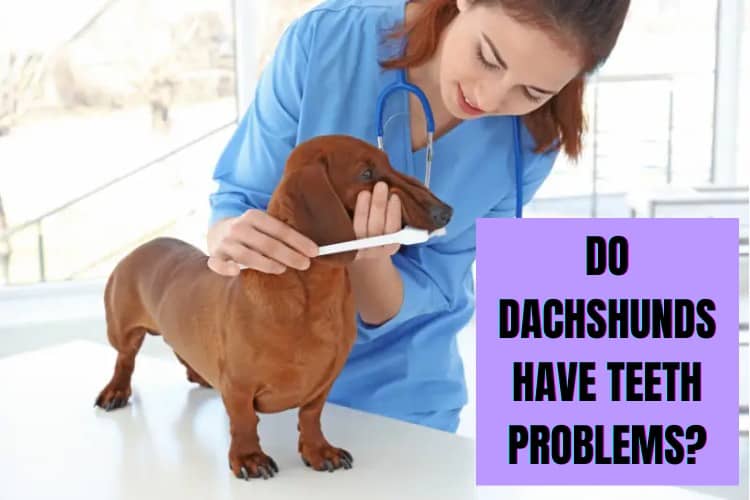
Dachshunds are a delightful breed usually thought of as being low-maintenance – however, one area requiring special care is their dental health. As with all dog breeds, regular dental attention is vital for avoiding an array of illnesses such as infection, tooth decay, and gum disease. In this article, we will discuss the importance of maintaining correct oral hygiene practices for dachshunds and identify some common dental issues that may affect them.
- Are Dachshunds Prone to Dental Problems?
- Causes of Dental Issues in Dachshunds
- How Often Do Dachshunds Need Their Teeth Cleaned?
- How Do You Take Care of a Dachshund's Teeth?
- The Importance of Proper Dental Care for Dachshunds
- What are the five common signs of dental problems in dogs?
- At What Age Do Dachshunds Start Losing Teeth?
- Conclusion:
Are Dachshunds Prone to Dental Problems?
It’s no surprise that dental issues are commonplace in dachshunds; statistics from the American Veterinary Dental Society suggest that approximately 80% of canines older than three have some form of oral health issue. Unfortunately, our beloved sausage dogs are especially vulnerable to a range of dental conditions including plaque and tartar buildup as well as periodontal disease.
Dachshunds have a unique mouth structure that can make them more prone to dental issues than other breeds. Their long, narrow jaws and tightly spaced teeth create an environment where bacteria can thrive, leading to gum disease and tooth decay. In addition, their small size can make it difficult for owners to identify dental problems before they become more serious.
To prevent these issues from developing, it is essential to maintain good dental hygiene for your dachshund. This includes regular brushing, dental cleanings, and routine check-ups with your veterinarian. In the following sections, we will explore these topics in more detail to help you keep your dachshund’s teeth healthy and strong.
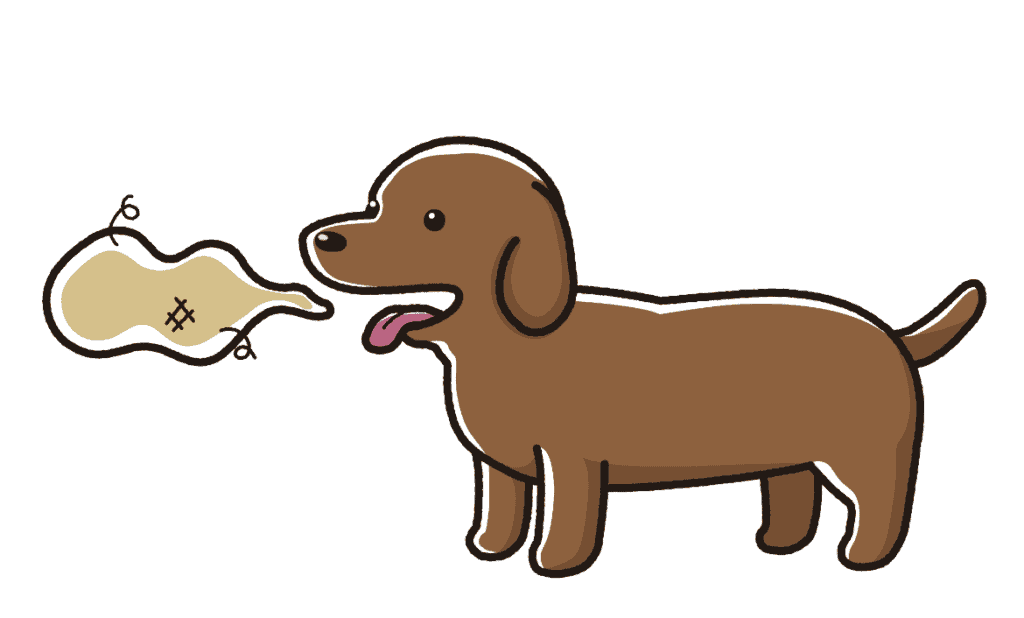
Causes of Dental Issues in Dachshunds
There are several reasons why Dachshunds may develop dental problems. Some of the most common causes include poor dental hygiene, genetics, injury, and a diet that’s not balanced or nutritious.
Common Dental Problems in Dachshunds
- Tartar Buildup and Plaque: Just like in humans, tartar buildup and plaque can occur in dogs if their teeth are not properly cleaned. This can lead to gum disease and tooth decay.
- Gum Disease: This is an infection of the gums that can lead to tooth loss and jawbone damage.
- Tooth Loss: This can be caused by injury or gum disease.
- Broken Teeth: This can occur from chewing on hard objects or from injury.
- Dental Abscesses: These are pockets of infection that can form around the roots of a tooth.
How Often Do Dachshunds Need Their Teeth Cleaned?
To guarantee a lifetime of healthy teeth and gums for your pet, it is necessary to brush their teeth at least two to three times every week.
Regular dental cleanings are crucial for maintaining your dachshund’s oral health. The frequency of cleanings can vary based on your dog’s individual needs, but in general, it is recommended to have your dachshund’s teeth cleaned by a veterinarian at least once a year.
In some cases, your dachshund may need more frequent cleanings to prevent the buildup of plaque and tartar. Signs that your dachshund may need cleaning include bad breath, swollen or bleeding gums, and difficulty eating. If you notice any of these symptoms, it’s important to schedule a dental check-up with your veterinarian as soon as possible.
How Do You Take Care of a Dachshund’s Teeth?
Maintaining good dental hygiene is essential for preventing dental problems in dachshunds. Here are some steps you can take to keep your dachshund’s teeth healthy:
- Brush Your Dachshund’s Teeth Regularly: Brushing your dachshund’s teeth at least two to three times a week is one of the best ways to prevent tartar buildup and plaque. You can use a soft-bristled toothbrush and dog-specific toothpaste to brush your pet’s teeth.
- Provide a Nutritious Diet: A balanced and nutritious diet can help keep your pet’s teeth and gums healthy. Make sure you choose high-quality dog food that contains the nutrients your pet needs.
- Give Your Dachshund Chew Toys: Chew toys can help keep your pet’s teeth clean and strong. Just be sure to choose toys that are made from safe, non-toxic materials.
- Regular Dental Check-Ups: Regular check-ups with your veterinarian can help detect and prevent dental problems early on.
The Importance of Proper Dental Care for Dachshunds
Proper dental care is essential for maintaining the health and well-being of your dachshund. Regular teeth cleaning and dental check-ups can help prevent gum disease, tooth decay, and other dental problems. This is particularly important for dachshunds, who are prone to dental problems due to their overbite.
In addition to regular dental check-ups, it is also important to provide your dachshund with chew toys and bones that can help keep their teeth clean and healthy. Chewing on these toys can help remove plaque and tartar, leading to dental problems if not taken care of properly.
Related post: Do You Need Pet Insurance For Your Dachshund?
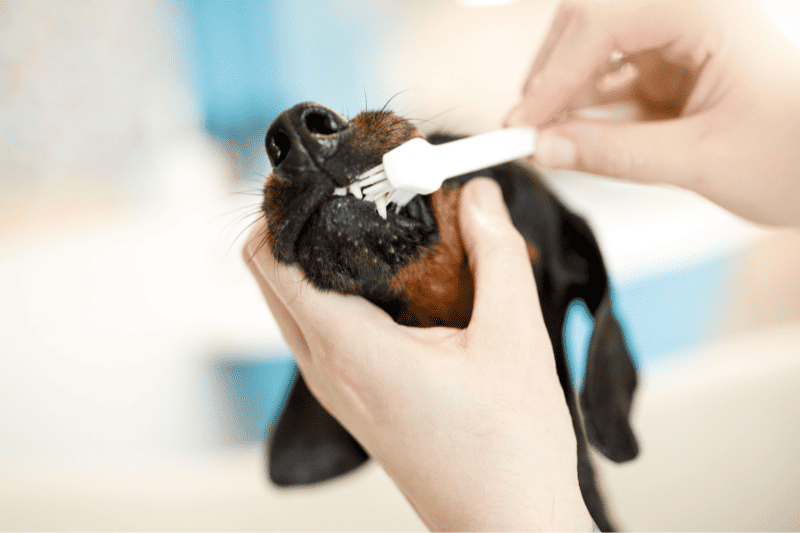
What are the five common signs of dental problems in dogs?
Here are five common signs of dental problems in dogs:
Bad breath.
Malodorous breath can be the initial warning sign of periodontal disease in your canine, and it could even serve as your only indication. While bad breath isn’t definitive proof of an underlying health issue, it is often a cue to visit the veterinarian for a dental evaluation.
Bleeding from the mouth
If you detect your pup is experiencing gum tenderness, it could be an indication that bacteria has infiltrated their gums. Don’t hesitate to contact your vet right away and make a visiting appointment as soon as possible.
Yellow or brown buildup on teeth
It is quite common to find plaques on your dog’s teeth, however, they do not necessarily suggest periodontal disease. However, bacteria can spread and cause tissue damage – including bone loss – if there are heavy plaque deposits present. To prevent this from happening and ensure optimal health for your pup, it’s best to have the plaques removed by a vet who will also clean under the gumline to remove any bacterial colonies that may be present.
Excessive drooling.
While some drool is normal for our canine friends, especially around mealtime or when they expect a treat, any excessive salivation unrelated to these occasions may indicate an underlying dental condition. Don’t wait – if your pup has been slobbering more than usual lately, it’s worth getting them checked out by a vet!
Difficulty chewing and decreased appetite
Like humans, dogs can experience dental discomfort and pain. Persistent periodontal disease can make basic activities such as eating excruciatingly uncomfortable. Your pup may start to chew differently, eat less than usual, or shed weight rapidly – all of which should be considered warning signs that prompt an immediate visit to the vet!
If you suspect your dog is experiencing dental problems, it’s important to take them to a veterinarian as soon as possible. The earlier dental issues are addressed, the easier they are to treat and the less likely they are to cause long-term harm to your pet’s health.
Related post: Why Do Dachshunds Have Bad Breaths?
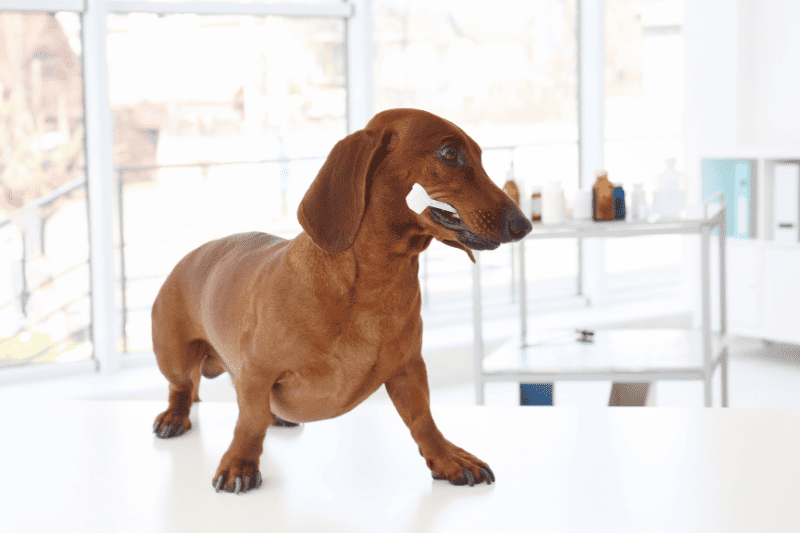
At What Age Do Dachshunds Start Losing Teeth?
Dachshunds, like all dogs, will start losing their baby teeth around three to four months of age. The process of losing baby teeth and growing adult teeth usually takes several months, during which time your dachshund may experience some discomfort and tenderness in their mouth.
Once your dachshund has all of their adult teeth, it’s important to continue monitoring their dental health to prevent issues from developing. In some cases, dachshunds may experience premature tooth loss due to a variety of factors, including injury, gum disease, or poor dental hygiene. If you notice any missing or loose teeth, it’s important to schedule an appointment with your veterinarian to determine the cause and appropriate treatment.
Related post: Are dachshunds a healthy breed?
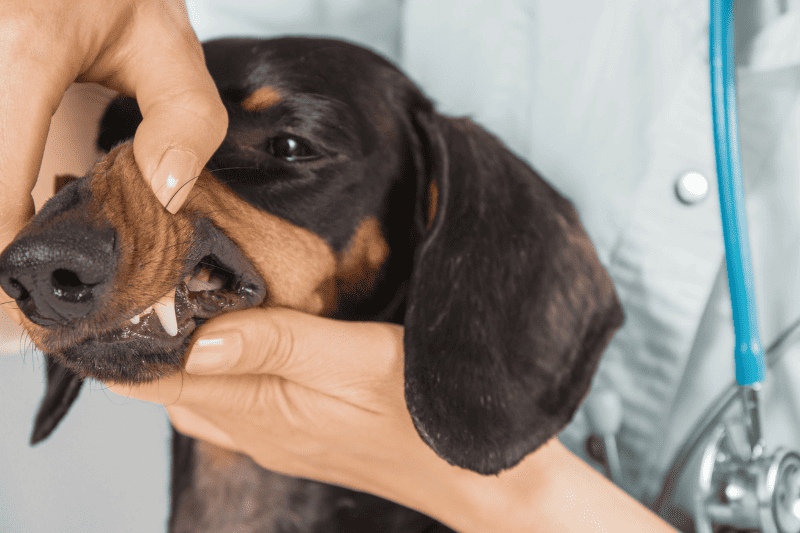
Conclusion:
In conclusion, dachshunds have a unique tooth structure that is important to understand. With proper dental care and a healthy diet, you can help maintain the health and well-being of your furry friend. By regularly monitoring your dachshund’s teeth, you can catch any potential dental problems early and ensure that they have a happy and healthy life.
It’s essential to take care of your Dachshund’s dental health to ensure they stay healthy and happy. Regular dental check-ups, a nutritious diet, and regular brushing can go a long way in preventing dental problems.
If you suspect that your pet is experiencing dental issues, don’t hesitate to reach out to your veterinarian for treatment. With proper care, your Dachshund’s teeth can stay healthy and strong for years to come.
Related post: Common health problems in dachshunds



